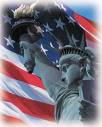Wrestling with my inner soul, I cried before my God. Collapsing like a house of cards onto the bed, I incoherently bawled out my prayer of mourning. Fear clenched my heart, terror danced before my eyes, while I fought against despondency…Only to embrace her as an old friend.
I had entrapped myself in despair so often and so consistently, that it became almost comfortable, like the embrace of a bottle for a drunkard.
The same event triggered these bouts of depression: sin. Of course, it was never just any sin (white lies did not bother so), but it was sin nonetheless. And of these sins, only one stood out with great relief. It was a danger that readily consumed my waking hours, haunting me, teasing me like a shadow just out of the corner of my eyes.
Was I in God’s will?
If not, then I was in sin!
…What was God’s will for my life anyway?
These were the questions that hounded my teenage existence. Couple these questions with the quest for spiritual perfection and the conclusion becomes obvious: spiritual melancholy. It certainly did not help that I compared myself to those golden Christians I always read about: Muller, Wilkerson, Brother Andrew. All of them so readily found God’s will. They were so perfect.
And I wasn’t. Not by a long shot.
It was not until a book providentially fell on my lap did I begin to rise out of that emotional morass. My father recommended some Banner of Truth books that he stumbled across. So, while working steadily in the military, I took my spare time and read Ian Murray’s The Forgotten Spurgeon. There I read about these awful “Arminians”—men that claimed some supremacy over God’s will. There I read about an incomprehensibly wonderful God who controlled all things for His own glory.
But it was not just the words that began to challenge me, it was the over-abundance of Bible verses. So many verses---even in those old forgotten books of the Bible: the Old Testament. Although I implicitly believed that my life should be founded upon the Scriptures, my charismatic background undercut such a belief. These books awakened me to a newer and fresher understanding of the sole sufficiency of the Bible. Here I can find God’s will! Unbeknownst to me, I was existentially back at the Reformation, relearning sola Scriptura, the formal cause of that mighty revival.
As the old song goes, “He’s still working on me….” With this renewed embracing of the whole Bible, I delved into the marvelous doctrines of Grace: sola fide, sola gratia, solus Christus, soli Deo Gloria! Faith alone, grace alone, Christ alone, to the glory of God alone.
It may be surprising to some to know that it was not merely or mostly the five-points of Calvinism that transformed my life; rather those points were five great sentinels of the Gospel, guarding that core belief of the Evangel: justification by grace alone through faith alone on account of Christ alone.
Soon the material cause of the Reformation—justification by faith alone—gripped my heart, freeing me from the bondage of works-righteousness. In seeking God’s will, I was seeking my own perfection, dreading any occasion for being “outside His will.” Such fear was not always overtly tied to the Ten Commandments. It was more linked with the horror of losing my salvation.
For, you see, I was taught that nothing could take me out of Christ’s hand---except myself. If I sinned enough, if I doubted enough, if I was far enough “outside” of God’s will, then I would descend into hell. It was all about me. Sure, the teaching of God’s forgiveness of sins was preached, but the righteousness of
 Christ imputed to me was a complete mystery. What that meant in practical terms was that I tried to be as sinless as possible through fear of punishment. Since Christ did not cover my sin with His righteous obedience to the Law, I had to fulfill the Law. Or at least believe “enough” to stay in God’s will. I did not want to be a “carnal” Christian.
Christ imputed to me was a complete mystery. What that meant in practical terms was that I tried to be as sinless as possible through fear of punishment. Since Christ did not cover my sin with His righteous obedience to the Law, I had to fulfill the Law. Or at least believe “enough” to stay in God’s will. I did not want to be a “carnal” Christian.There was no rest. I strived mightily to be faithful. Having my sins forgiven but being left with my own perfection before the Law was an intolerable way to live.
It was akin to having the red-markings of sin on the chalk-board of life erased, only to have myself write the correct answers in the pure-white chalk of perfection. It could not be done. Having started in the spirit, I was continuing in the flesh.
And grasping—or rather being grasped by—the truth that Christ not only forgave my sins but fulfilled the Law in my place rejuvenated my heart and soul. I felt born-again, knowing that nothing could take me from Christ’s hands, not even myself! Understanding that regeneration meant new desires, I would never want to leave, and I would ever strive toward obedience, not out of a sense of completing my salvation, but out of a sense of gratitude.
Everything took on a new cast: I was in God’s Hands; even sin was part and parcel of His plan. Nothing could separate me from the Love of Christ. My personal Reformation was complete. I had direction and I had renewal.
And I immediately yearned for a wider renovation in the church. And that desire has not abated. Pray that the shackles of confusion and legalism would be broken. Pray that the Church of Christ would rediscover the Gospel.
Pray that the Lord of the harvest would reap mightily.
Amen.
[Postscript to Reformation Impact!]

